Andrew Tate: The Social Enigma – An FIS Perspective
Andrew Tate is a man whose name has dominated the media sphere since his exponential rise in popularity over the last few years. The self-proclaimed “Top G” holds his opulent and extravagant lifestyle as a major part of his internet persona, saving no instance to boast about his fleet of sports cars or repeat his highly quotable phrase: “What color is your Bugatti?”. Tate has undoubtedly garnered massive popularity, with views that amount to more than 12.7 billion on Tiktok alone. In July 2022, more Google searches of his name were carried out than of established public figures such as Kim Kardashian or Donald Trump. But how did the rise and fall of what could be considered one of the most controversial personalities of the early twenty-first century come about? How did he achieve his practically unheard-of trajectory of fame? Why does he have influence on society, especially the younger generations?
Before Tate’s rise to fame as one of the most divisive social media personalities in the world, his career was primarily focused on kickboxing. Beginning training in 2005, he debuted at age 20 in 2007, being dubbed as “King Cobra”. Impressively, merely one year later, Tate managed to rank as the seventh-best light-heavyweight kickboxer in Britain. With a record of 76 wins and 9 losses, he has won four world titles in multiple weight divisions in the ISKA’s Martial Arts World Championships (one of the most, if not the most formidable martial art championship in the world, with more than 8,000 competitors and 12,000 spectators attending the event each year). Tate’s career wasn’t solely limited to kickboxing; he’s also competed in a handful of MMA matches, with a record of 2 wins and 1 loss.
Retiring in 2016 after 10 years of competing in the ring, Tate decided to focus more on becoming a more successful social media influencer. Back in 2010, he took part in an eight-part TV series called Ultimate Traveller. However, he first gained widespread recognition in 2016, when he made his appearance in the seventeenth season of the British reality series Big Brother. Tate was kicked off the show only six days after amid sexual assault allegations, as a video resurfaced of him beating a woman with a belt and threatening to kill her.
In retaliation, he put out a statement on his Facebook (that was later deleted), stating that the real reason why he was kicked off the show was because he had devised “a master plan” to cause trouble that was “too cunning and dangerous.” He denied all allegations of sexual assault, claiming that all actions in the video were consensual. According to VICE News, the removal of the video was caused by an “ongoing police investigation” that closed in 2019 after no charges were filed.
Andrew Tate has a long history of sharing his deeply misogynistic thoughts on social media. A few of the countless misogynistic ideas he can be attributed to are: women cannot drive, women are a man’s property, victims of sexual assault must bear responsibility (in response to the #MeToo movement, resulting in him being banned from Twitter), and many more. In addition, he boldly proclaimed the decline of Western civilization after seeing a poster in London’s Heathrow Airport that encouraged “girls to go on holiday as opposed to encouraging being a loving mother and a loyal wife.” Tate has also claimed 40% of the reason for his move to Romania was to easily evade sexual assault charges, saying, “I’m not a rapist, but I like the idea of just being able to do what I want. I like being free.”, and “I like eastern Europe as a whole because corruption is far more accessible.”.
Tate is also infamous for spreading the dangerous ideology of toxic masculinity through quotes bordering the outrageous and sometimes even ludicrous. A notable example is his take on sparkling water. Andrew Tate has expressed his adoration for sparkling water and his disdain and disgust for men who choose instead to drink tap water, claiming they are effeminate for “being scared of the bubbles” and shouldn’t wonder why they “don’t have the motivation to do a single push up.” Another, more extreme example of this dangerous rhetoric is his statement encouraging men with a heart attack to “Go (to the) hospital later. Have a drink, cigarette, cup of coffee, back in the game.”.
As aforementioned, a quick scroll through Andrew Tate’s accounts on social media will make one thing very clear – his swanky lifestyle is an essential part of his brand. Claiming to be ‘the world’s first trillionaire’ during a Twitch stream with Adin Ross, Tate states: “I was broke for a long time. I made my first million when I was, say, 27 and then I had 100 million by the time I was 31, and then I became a trillionaire quite recently.”
However, it’s been revealed through many sources that his net worth is around 100 million pounds. Tate’s fortune was primarily earned through inheritance from his late father, crypto-currency and his renowned business, ‘Hustler’s University’. Founded in 2021, Tate has created an online platform that’s intended to teach others about passive income in various online industries. By paying a $49.99 monthly membership fee, members have access to pre-recorded instructional videos and a Discord server. They’re told that they can earn up to 10k pounds a month by following his lessons on crypto investing and drop shipping. In addition to that, recruiting someone else to Hustler’s University can earn you up to 48% of the recruit’s commission.
By August 2022, the platform had amassed over 127,000 subscribers, with boys as young as 13 willingly honing in on this notorious ‘pyramid scheme’, as stated by Paul Harrigan, a marketing professor at the University of Western Australia. After being shut down during that same month, Tate has launched a rebranded version of the program, called “The Real World”.
Aside from Hustler’s University, he also offers training programs on “male-female interactions”, as stated on his website. Andrew Tate and his brother Tristan Tate have also started a webcam business, employing around 75 webcam models to “sell fake sob stories to male callers”, according to the Independent. He later claimed that he’s made “millions of dollars doing so”.
Currently, the infamous Andrew Tate has been detained along with his brother Tristan and two others in Romania, since the 29th of December 2022. All four suspects are potentially facing years in prison for charges of human trafficking, and among them, one charged with rape (who’s not allowed to be named due to local laws). Before, on April 24th of that year, Romanian officials initiated an investigation into Tate and his brother Tristan and reportedly stormed Tate’s Romania residence, where he was allegedly holding two women hostage, after being tipped off by the US Embassy that an American citizen was being detained against their will.
On January 4th of 2023, Romanian authorities seized 11 cars belonging to Tate and his brother, and investigations are taking place to figure out whether these cars were purchased with money made from human trafficking. As of February 21st 2023, a court in Bucharest has agreed to extend his detention time by 30 days for the third time.
Andrew Tate has gathered a nearly cult-like following of particularly young men who identify with his motivational words, adopt his ideologies, and mimic his mannerisms. A demonstration of Andrew Tate’s widespread influence was an event that took place in Athens, Greece, in January 2023. Following Tate’s arrest, a mass of his fans, predominantly composed of young men, flocked to the Greek capital’s Syntagma Square and Ermou Street. They chanted “Free Top G,” communicating their support for Tate and demanding his release from prison. This instance was a radical manifestation of just the sheer power Andrew Tate has over the youth of the present day, especially over young men and boys.
An FIS Perspective
After our research, we wanted to get a scope of what boys in a familiar environment, FIS, thought of the whole situation. We gathered 4 anonymous interviews from male FIS students in 9th-10th grade.
So what do you know about Andrew Tate?
- Interviewee 1: Known for his pyramid scheme, hustlers university, and “what color is your bugatti?” Likes to intervene on controversial topics and ‘justify’ his absurd opinions.
- Interviewee 2: He’s a millionaire, very influential to younger people, large social media presence.
- Interviewee 3: Andrew Tate is a multi billionaire and has multiple mega mansions and luxury cars he’s been accused and arrested 2-3 times.
- Interviewee 4: Well I know he is a so-called “online motivational speaker” who runs an online education business called “Hustlers University”, in which he promises his audiences to help them earn lots of money. I also know he is a former kicks-boxer, his dad was a grandmaster in chess. He has properties, including mentions and cars, across the globe and he constantly changes his location of residence. He went insanely viral on social media for what I would describe as his “online character” and was arrested rather recently for reasons I’m not sure of.
What have you heard from others about what they think of him?
- Interviewee 1: He is actually quite highly spoken of from others, because of his financial advice, and his podcast.
- Interviewee 2: I hear from many people how much they like him. I do not see the appeal whatsoever. I think he’s just a jerk and a misogynist and appeals to the younger generation because their brains aren’t fully developed, and think misogynistic thoughts.
- Interviewee 3: Many of my friends have mixed thoughts about him such as some saying he is nice guy with good views and ideas while others say he has horrible views and is a misogynist and is a big problem to people.
- Interviewee 4: Well I think he is certainly a very controversial person, therefore opinions are very divided. Firstly I think it’s important to recognise the fact that in this matter, there is a socially accepted answer, which is that if you’re a person within reason, you should not like him. With that in mind, I would say most of my friends absolutely despise him and think that justice has absolutely been served when he was banned on social media and was arrested. However there are a fair handful of people (potentially more than it seems), mostly guys, who from discussions with them, you can easily sense that their opinions about Tate are definitely not negative and some are even rather positive. I think these people see him as a bit of a hero because he finally expressed their controversial opinion, which had been “silenced” because they don’t fit in the modern socially accepted paradigm. I sometimes equate Tate to Trump – a madman who finally spoke the heart of millions of people when they otherwise could never express their opinions because they know these opinions are not politically correct.
What do you think about his online persona? In your opinion, is he a role model? Do you look up to him, and if so, in what ways?
- Interviewee 1: He impersonates himself as a role model, but I think he’s quite the opposite. He is shaping the current young generation into a character he wants. He manipulates us in order to get the attention he wants. He gives us financial advice and tells us about his “rags to riches” story with his brother Tristan, which I don’t believe because he used to be a drug cartel when 18-20.
- Interviewee 2: He is a bad role model. He does this thing where he says something very relatable like “Vaping is bad” which appeals to everyone and then says (actual quote) “I’m not a rapist, but I like the idea of just being able to do what I want. I like being free.”. This poisons a growing child’s mind into thinking everything that Tate says is true and it’s terrible. I heard in a podcast that kids think that he is the closest thing to a superhero you will find because he has muscles, is rich, and gets women. The basis of that isn’t bad, those aspects of him I might admire, but because others admire that as well he can put his stupid ideas into many people’s heads.
- Interviewee 3: Andrew Tate has some good views and ideas such as his ideology of trying to get people to get fit and get rich. I look up to him in these ways while In some of his other statements I don’t believe in such as his rants on women and racism.
- Interviewee 4: Firstly I think his online persona is horrible, a lot of the things he says are quite frankly disgusting to hear. On the other hand though, I think that he knows exactly what he is doing when he is making those comments and I think he is trying to portray an online character rather than illustrating how he truly is. I am not saying that he is a wonderful person in real life, I just think that we should be logical when criticizing or praising him, that, just like any public figures, how he is online is not exactly how he is in real life. He is definitely not a role model for me because I fundamentally disagree with most of his opinions and actions. Just like any human though, there are elements of him that can be respectable, for example his chess skills, or the fact that he can kickbox, but I definitely don’t look up to him whatsoever as a person.
What do you think about his career and his background?
- Interviewee 1: His background is interesting, he is half American and the other half is British. I don’t see a reason why he would live in Romania.
- Interviewee 2: I don’t think that he isn’t a hard worker perhaps, I think that he worked to earn his money. I don’t know much about his background, but I know that he did not get his money through inheritance. He has a course called “Hustlers University” for which many people signed up at the price of 50$ which I find pretty dumb. He also claims that he was the world’s first trillionaire? How did he beat the likes of Bezos and Musk?
- Interviewee 3: I don’t know much about his background apart from his growing up in Romania in a poor family with his brother. His dad Emory Tate is a renowned chess player which also led to Andrew being interested in it but I believe he had a humble beginning which led to him wanting to become rich and powerful.
- Interviewee 4: Quite frankly I am not that informed on this regard. I mean I know he was not born rich, maybe much better than how he described it, but certainly he was not born in a wealthy family as far as I know. So the fact that he became a multimillionaire is pretty good for him. However, with little knowledge, I don’t think his path to wealth was all moral and legal.
Overall, do you think he has a positive or negative influence on people our age?
- Interviewee 1: Negative, I think he is enforcing toxic hustle culture to our generation.
- Interviewee 2: He is infecting this generation’s minds with bad ideas and misogynistic views. I hope more people come to the realization that he is an incapable idiot who will never help you make it far. He is a very bad influence.
- Interviewee 3: Depending on who you ask, his influence on people is a mic between good and bad. I believe apart from his absurd views he is a good role model. As he encourages becoming the best you can and having good habits such as not vaping, studying well and going to the gym.
- Interviewee 4: Certainly a negative one. Especially young adults like us because we are at an age where we are forming and consolidating our values, morals and beliefs. When we have certain opinions that quite frankly make us a worse person, our family, friends, teachers or the society should tell us that those opinions are wrong. However the popularization of Tate gave these negative opinions a medium to express, making some people believe that these opinions are acceptable.
One of the interviewees we contacted did not know enough about Tate to answer: he stated that all he knew about him was that he was bald, and did “cringe motivation stuff”.
Andrew Tate’s popularity among the younger generation is simply unparalleled. A possible explanation for this strange phenomenon uses Tiktok as the key to it all. Followers of Andrew Tate (including members of the aforementioned “Hustler’s University”) are encouraged to flood social media with clips of Tate’s most inflammatory statements in order to gather as much engagement and media attention as possible. This boosts his content and artificially makes it more palatable to the algorithm in a way. Tate fans are told they need to start controversy to be successful. Tate himself says, “What you ideally want is a mix of 60-70% fans and 40-30% haters. You want arguments, you want war.”.
But why exactly has the sharing of controversial content given Andrew Tate such an unprecedented growth curve? The secret lies within the way Tiktok itself works, its algorithm. Tiktok, as many readers might know, opens up with the For You page (also known as FYP). This bombards the viewer with a never-ending stream of short clips that the app has predicted they will be interested in. These recommendations are based on user interactions (likes, shares, follows, comments, posts, etc.), the caption of the video, the popularity of the sound or the hashtag, and the user’s language, country, and device type. This means that videos that cause more interactions, such as comments, for example, are shared with more people by the algorithm. This, in turn, boosts and encourages reactionary, controversial content that would trigger more users to interact in order to speak out against or for it or simply comment on the absurdity of it all.
Andrew Tate himself is not on the platform, but clips of him popularized on the app by his followers have benefited from the algorithm. As his fans are encouraged to post his most problematic statements, they garner a strong reaction (usually in the form of opposition) on the app. This abundance in user interactions causes TikTok to recommend videos of this type to more and more users. Because of this, they will eventually reach the For You pages of young boys, who, as a more impressionable audience, might be more inclined to be affected and influenced by this content. They might interact with the post by liking it or sharing it with their friends, which will cause them to be recommended even more Andrew Tate videos, to the point of their FYP being swallowed by misogynistic content, not even just from Tate but also from other more politically radical sources.
Contrary to the general words of praise that young generations like to preach about Andrew Tate, it’s certain that their elders think very differently. According to journalists from a multitude of sources – the Guardian, New York Times, the Independent.co.uk, News.com.au; one common consensus can be deduced, of which is something along the lines of: “Andrew Tate is a loathsome human being.”
Clint Edwards, journalist for the Independent states: “There is something fundamentally underdeveloped about Tate. I don’t mean physically, but emotionally, intellectually, culturally. He radiates so much insecurity – masked with aggression and arrogance – that personally, I feel I need to squint when I watch him … (Tate’s) prescriptions are filled with all kinds of sinister techniques that appeal to insecurities – scapegoating, resentment, in-group, out-group thinking – but the reason why it thrives is because these narratives also have an element of aspiration and self-betterment to them.”
Zoe Williams, journalist for the Guardian also adds: “(Tate) is the poster boy of the manosphere … (his) peacocking of unpleasantness is not without consequence … Those Tate-fans who swallow his nonsense whole are regarded by their peers as mugs, the kind of kids who’ll put a quid in a claw machine, thinking they might actually win something.”
Most importantly, major concerns have been raised by teachers. Chloe Stanton, an English teacher in East London, has heard “students talk casually about rape”. She mentions: “As the only woman in the room, I felt uncomfortable.” A student even asked her if “she was going to cry” once. Even at home, she was surrounded by acclamations defending Tate, voiced by her own three sons. “He is brainwashing a generation of boys, and it’s very frightening,” Ms. Stanton said. “They seem to think he is right. He’s right because he’s rich.”
Figures like Andrew Tate have a catastrophic effect on the younger generations. Young men who face challenges in their daily lives, such as insecurity, low self-esteem, or societal pressures, might be inclined to take Tate’s motivational words to heart. This could escalate to accepting his more reactionary ideas and adapting his misogynistic opinions. Tate is capable of radicalizing men and boys, causing them to commit harm to the women in their lives offline. According to Hannah Ruschen, an officer from the UK’s National Society for the Prevention of Cruelty to Children, “Viewing such material at a young age can shape a child’s experiences and attitudes, resulting in further harm to women and girls in and out of school and online.”.
It could even be said that Andrew Tate is facilitating the rise in political polarization. Political polarization is the divergence of political ideologies from the center to the extremes of the right or the left. Tate’s grasp on young and impressionable minds turns a child who is a blank slate into a preacher of extremist ideologies. In the United States, particularly, Republican and Democratic ideologies have never been so strongly divided. In a world where both sides are becoming increasingly polarized, it might become impossible to find a middle ground, prompting a rise in violence and authoritarianism in order for parties to impose their wishes and essentially get what they want.
Tate is essentially selling a lifestyle: his image is one of a man with all anyone could ever possibly want. He depicts himself as a figure you should aspire to become, the ultimate role model, a god. Young boys might see this, and taking account of his behavior, infer that the only way to achieve this “maximum success” is to become exactly like him.
Tate propagates ideas of deep misogyny and toxic masculinity and sells them as an antidote to the hurt that society has brought to vulnerable boys. This serves the exact opposite purpose: it only creates further harm, teaching boys that seeking help or struggling emotionally is something they should be ashamed of, and strips away their masculinity and prevents them from becoming a “real man”.
As aforementioned, the effect of the mass onslaught of political and misogynist ‘propaganda’ in young people, in a way, can all be traced back to one main factor: trends. According to Mr. Edwards, the effects that these trends have on young people are undoubtedly exacerbated by social media. And, it’s “fairly simple: because (Tate) is speaking to them and we aren’t … Teenage boys are small animals who love to be edgy, offensive and provocative. It’s no surprise that their attention would be drawn to Tate. But they are watching Tate’s content at the same time they are forming their own identities… and you have a person who is both vulnerable and perfectly primed for messaging.”
“The thing is, they want messages,” he says. “Young people want to understand the world around them, how it works, and what their place in it might be, but we leave it to toxic characters on the internet to fill in the blanks. Two of the largest influencers in the past five years have been Jordan Peterson and Tate, and both became powerful in exactly the same way: offering themselves as self-help gurus to an unaddressed demographic, who are looking for answers.”
In essence, hope in this situation is not all lost – educators across the United Kingdom are uniting to combat Tate’s messages, having realized only too late the extent of his influence among their students. Greatly concerned by the issue of groupthink in this situation, the British Psychological Society encourages guardians to endorse debate and discussions about peer pressure and the “impact of belittling, degrading or sexualising others and about vulnerability as a strength.”

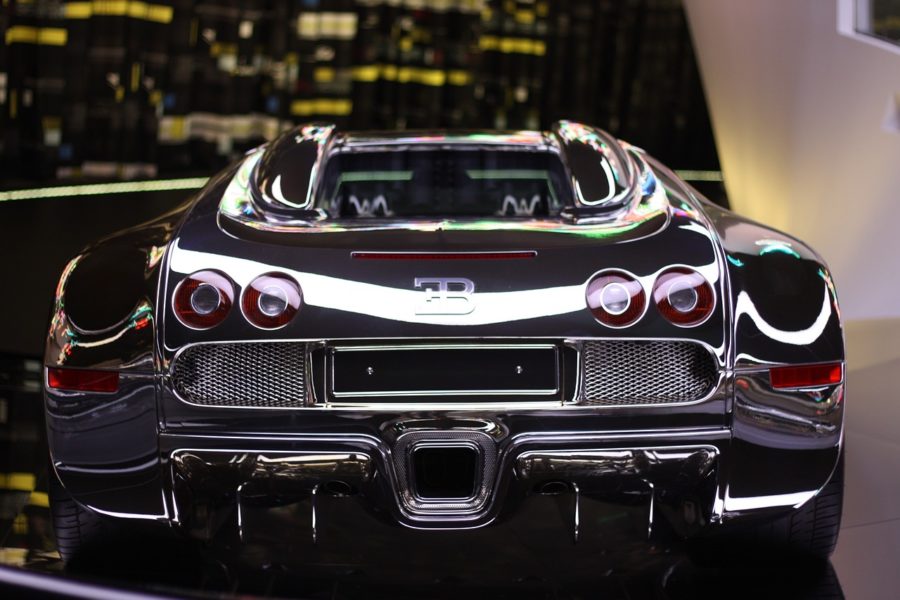
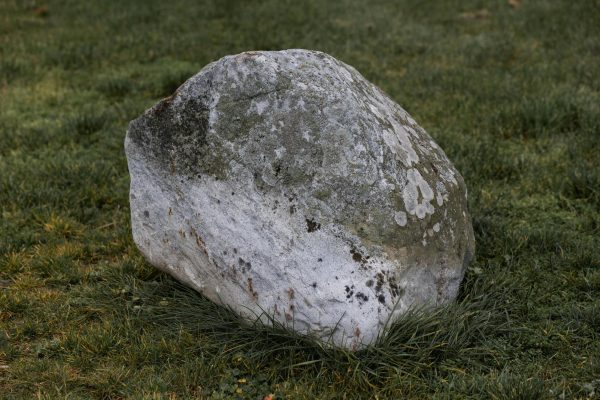
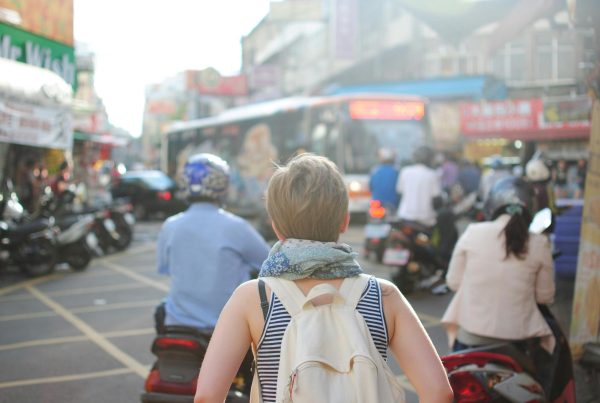

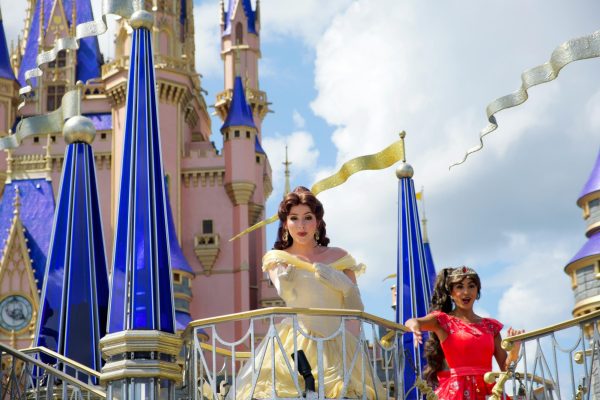
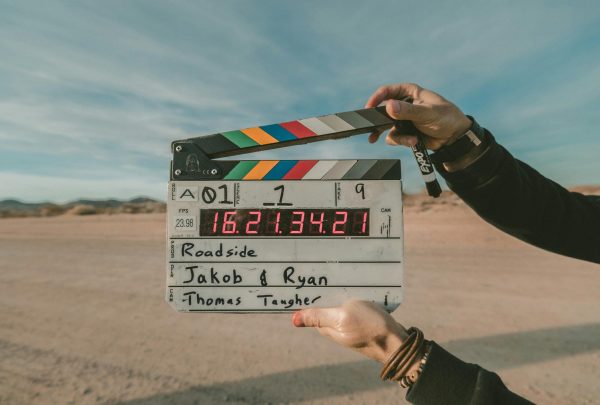
Ms Moore • Mar 31, 2023 at
Thanks for writing a good article about this! There is a really good documentary on the BBC “the Dangerous rise of Andrew Tate 2023” that might be of interest to some readers or followers. It is also on Youtube
Rhonna Jessome • Mar 29, 2023 at
Thank you so much for a very well written and well researched article! The ethical issues of fandom raised in your article in relation to the reproduction of racial and male superiority models are very clear in terms of the negative consequences. Critical engagement and education are powerful tools in the safe, fair and equitable treatment of humans.